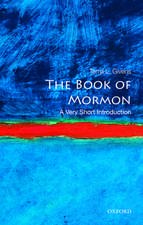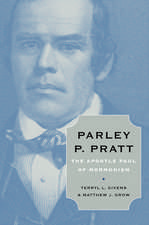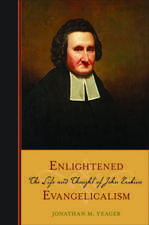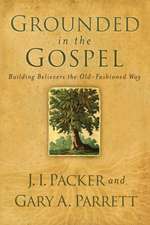The Polygamous Wives Writing Club
Autor Paula Kelly Harline Spus de Paula Kelly Harlineen Limba Engleză CD-Audio
The Church of Jesus Christ of Latter-day Saints renounced the practice of plural marriage in 1890. In the mid- to late 19th century, however the heyday of Mormon polygamy as many as three out of every 10 Mormon women became polygamous wives.
Paula Kelly Harline delves deep into the diaries and autobiographies of 29 such women, providing a rare window into the lives they led and revealing their views and experiences of polygamy, including their well-founded belief that their domestic contributions would help to build a foundation for generations of future Mormons. Polygamous wives were participants in a controversial and very public religious practice that violated most 19th-century social and religious rules of a monogamous America. Harline considers the questions: Were these women content with their sacrifice? Did the benefits of polygamous marriage for the Mormons outweigh the human toll it required and the embarrassment it continues to bring? Polygamous wives faced daunting challenges not only imposed by the wider society but within the home, yet those whose writings Harline explores give voice to far more than unhappiness and discontent. The personal writings of these women, all married to different husbands, are the heart of this remarkable audiobook they paint a vivid and sometimes disturbing picture of an all but vanished and still controversial way of life."
Preț: 57.08 lei
Nou
10.93€ • 11.87$ • 9.18£
Indisponibil temporar
Specificații
Descriere
The Church of Latter-day Saints renounced the practice of plural marriage in 1890. In the mid to late nineteenth century, howeverthe heyday of Mormon polygamyan average of three out of every ten Mormon women became polygamous wives. Paula Kelly Harline delves deep into the diaries and autobiographies of twenty-nine such women, opening a rare window into the lives they led and revealing their views of and experiences with polygamy, including their well-founded belief that their domestic contributions would help to build a foundation for generations of future Mormons. Polygamous wives were participants in a controversial and very public religious practice that violated most social and religious rules of a monogamous America. Harline considers the questions: Were these women content with their sacrifice? Did the benefits of polygamous marriage for the Mormons outweigh the human toll it required and the embarrassment it continues to bring? Polygamous wives faced daunting challenges not only imposed by the wider society but within the home, yet those whose writings Harline explores give voice to far more than just unhappiness and discontent. Following two or three women simultaneously and integrating their own words within a lively narrative, Harline focuses on the detail of their emotional and domestic lives over time, painting a vivid and sometimes disturbing picture of an all but vanished and still controversial way of life.
Recenzii
Senior editor Theo Calderara identifies Paula Kelly Harline's The Polgamous Wives Writing Club: From the Diariesof Mormon Pioneer Women as one of the press's top-selling religion books of 2014.
This book restores an essential chapter in Mormon history. Since the days of our polygamous foremothers, Mormon women have been stereotyped as voiceless victims and dupes. By digging into the heart history of Mormon polygamy through the writings of the women who lived it, Paula Kelly Harline shows that Mormon women have wrestled with the unique demands of our faith with a full range of human motivations and feelings: grace and conflict, acquiescence and resistance, vocal criticism and quiet acceptance, pride and dejection, confidence and frustration. Is polygamy really a core element of Mormon theology? Harline offers both powerful commentary on this unresolved question that still weighs on so many Mormons, as well as a richly detailed history of Mormon womens lives. Intimate and important, this is a Mormon studies must-read
Paula Harlines treatment is a revealing if painful look into the profoundly rooted contradictions of Mormon plural marriage: she shows it to be a practice wives publicly defended while privately lamenting; one that fostered solidarity with a sisterhood burdened with the principle, even as it fomented rivalries and sorrows within those marriages; and a practice that left a conflicting legacy of pride in the sacrifice polygamists endured, along with a persisting unease with the teachings and practices themselves
Harline has done a great service in bringing together these narratives linking the high spiritual aims and the excruciating realities of a practice that cut to the core of women's lives. Harlines clear-eyed and tempered analysis contextualizes the very personal voices of the past
















